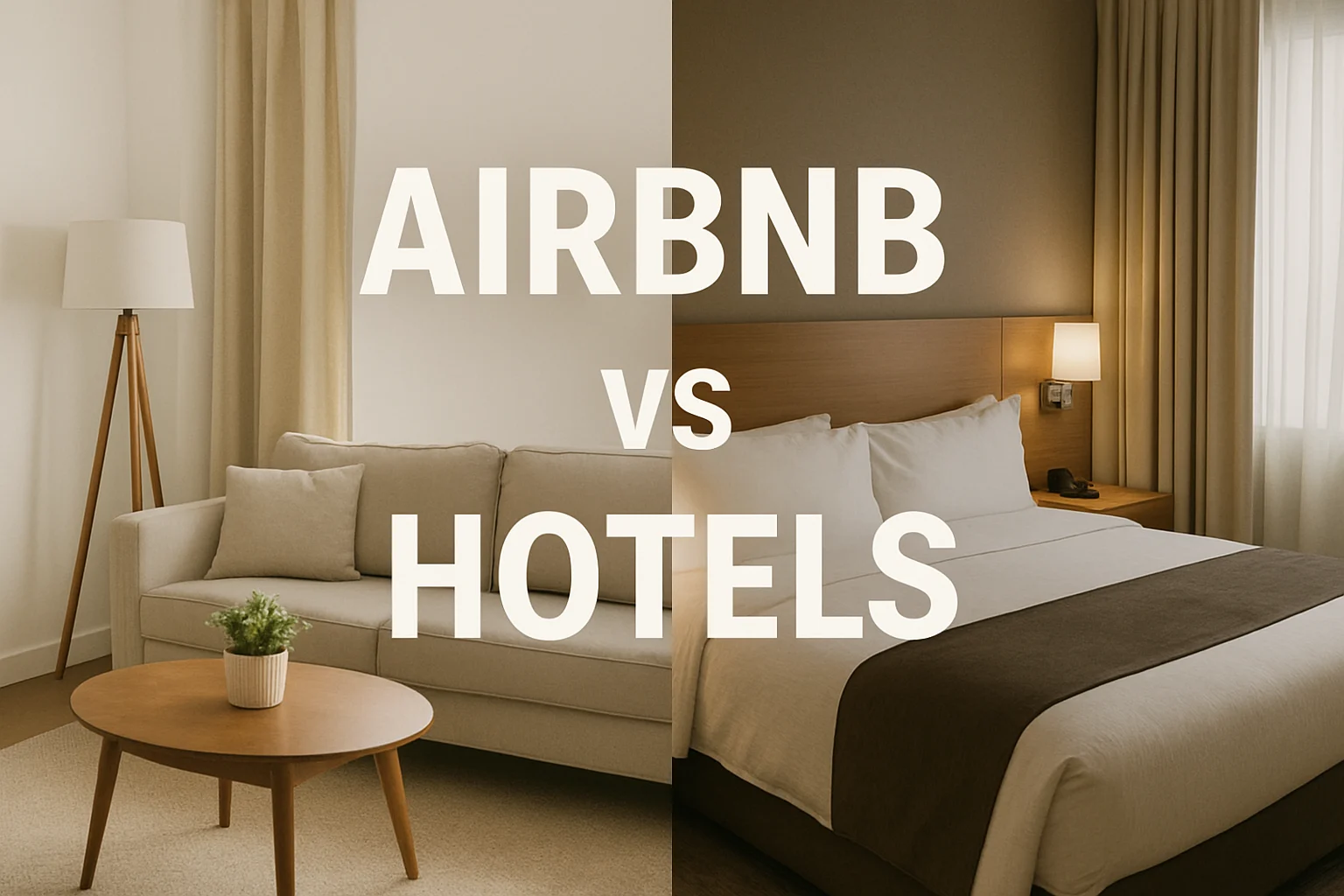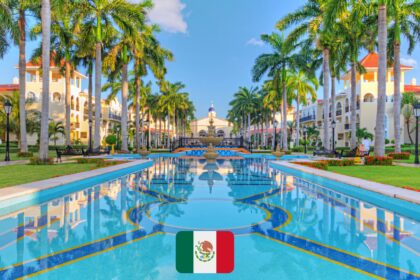As a woman who’s traveled solo to over 40 countries, I’ve stayed in everything from luxury hotels to questionable hostels, pristine Airbnbs to sketchy vacation rentals that made me question my life choices. The safety debate between Airbnb and hotels isn’t just academic for me—it’s shaped real decisions about where I sleep at night when I’m thousands of miles from home with no backup plan.
The question of which accommodation type is safer for solo travelers doesn’t have a simple answer, but after years of experience, extensive research, and a few close calls that taught me valuable lessons, I can break down the real safety factors that matter. This isn’t about fear-mongering or avoiding adventure—it’s about making informed decisions that let you travel confidently and sleep peacefully, whether you’re exploring Bangkok’s street markets or hiking solo through Patagonia.
The truth is, both Airbnb and hotels can be incredibly safe or potentially dangerous, depending on factors that have nothing to do with the platform itself. Understanding these factors—and knowing how to evaluate them—is what separates nervous travelers from confident solo adventurers.
The Safety Infrastructure: Hotels vs Airbnb
Hotel Safety Advantages
Hotels operate within established safety frameworks that provide multiple layers of protection for solo travelers. Professional staffing means there are trained personnel available 24/7 who understand emergency procedures, can provide assistance, and serve as witnesses to your comings and goings. This human safety net is invaluable when you’re traveling alone.
Regulated safety standards require hotels to meet fire safety codes, maintain emergency exits, install adequate lighting, and undergo regular safety inspections. These regulations vary by country but provide baseline protections that individual property owners aren’t required to meet.
Security systems in hotels typically include key card access, security cameras in common areas, front desk monitoring, and often security personnel. While not foolproof, these systems create barriers that deter opportunistic criminals and provide evidence if incidents occur.
Established liability and insurance means hotels have financial incentives to maintain safe environments and legal obligations to protect guests. Their reputation and business depend on guest safety, creating strong motivations for maintaining security standards.
Airbnb Safety Challenges
Airbnb properties operate in a regulatory gray area where safety standards vary dramatically. A host might have installed smoke detectors and secured windows, or they might have overlooked basic safety measures entirely. Unlike hotels, there’s no standardized safety inspection or requirement for emergency procedures.
Isolation factors can work against solo travelers in Airbnb properties. You might be staying in a remote location, in a separate unit where neighbors can’t hear you, or in a property where the host lives far away. This isolation eliminates the safety buffer that hotel staff and other guests provide.
Host variability means your safety depends largely on individual property owners who have varying levels of experience, responsibility, and good intentions. While most hosts are genuine people trying to provide good experiences, the platform’s structure makes thorough vetting challenging.
Limited immediate assistance characterizes many Airbnb stays. If you need help at 3 AM, your options might be limited to calling the host (who may not answer), contacting Airbnb support (which can take time), or calling local emergency services.
READ ALSO: Top 5 Budget-Friendly Hotels in Dallas
The Real-World Safety Factors That Actually Matter
Location Intelligence Trumps Accommodation Type
The neighborhood where you stay matters more than whether it’s a hotel or Airbnb. A well-located Airbnb in a safe, well-lit area with good public transportation beats a hotel in a sketchy neighborhood every time. Research crime statistics, read recent reviews mentioning safety, and use tools like Google Street View to assess the area virtually before booking.
Walkability and transportation access significantly impact solo traveler safety. Can you walk safely to restaurants, attractions, and transportation at different times of day? Are there reliable rideshare or taxi services? Is the area well-lit with regular foot traffic? These factors affect your safety regardless of accommodation type.
Local emergency services response varies dramatically by location. In some areas, police and medical services respond quickly and efficiently. In others, you might be largely on your own. Research local emergency numbers, hospital locations, and police station proximity before choosing any accommodation.
The Host/Management Factor
In Airbnb properties, your safety often depends heavily on your host’s attention to security details. Responsive communication before arrival indicates a host who takes their responsibilities seriously. Hosts who answer questions quickly, provide detailed check-in instructions, and proactively share safety information tend to run more secure properties.
Property maintenance standards reveal host priorities. Well-maintained properties with recent updates, functioning locks, good lighting, and attention to detail suggest hosts who prioritize guest safety. Neglected properties often have security vulnerabilities beyond what’s visible in photos.
Local knowledge sharing from hosts can significantly enhance your safety. Good hosts provide recommendations for safe transportation, areas to avoid, cultural considerations, and emergency contacts. This local insight is one of Airbnb’s potential safety advantages when hosts are engaged and knowledgeable.
Hotel management quality varies similarly, but corporate standards provide more consistency. However, even luxury hotels can have safety issues if management doesn’t prioritize security or if staff aren’t properly trained.
The Privacy vs Security Trade-off
Hotel visibility means other people know where you’re staying, when you come and go, and can provide assistance if needed. Front desk staff, housekeeping, and other guests create a network of potential help. For solo travelers, this visibility can be a crucial safety feature.
Airbnb privacy offers different advantages and risks. You might have more privacy and control over your environment, but you also have less immediate access to help if needed. This trade-off affects solo travelers differently depending on their experience level, destination, and personal comfort with independence.
Check-in procedures reveal important security differences. Hotels typically require ID verification and have staff present during check-in. Airbnb check-ins might be entirely self-service with key lockboxes, which can be convenient but eliminates human verification and assistance.
READ ALSO: Best Lisbon Airbnbs for Beach Lovers
Gender-Specific Safety Considerations
Solo female travelers face additional safety considerations that can influence the hotel vs Airbnb decision. Visible accommodation security can deter harassment and unwanted attention. Hotels with doormen, security cameras, and professional environments signal that someone is watching and that inappropriate behavior has consequences.
Cultural context significantly impacts safety for women travelers. In some destinations, staying in established hotels provides cultural legitimacy and protection that private accommodations might not offer. Local customs around women’s independence, interaction with strangers, and accommodation choices should influence your decision.
Emergency support systems become more critical for women traveling alone. Hotels typically offer more immediate access to assistance, while Airbnb properties might leave you more isolated if situations become uncomfortable or threatening.
However, some women prefer Airbnb properties for the ability to control their environment completely, cook their own meals, and avoid interactions with hotel staff and other guests. The key is matching accommodation type to your comfort level and the specific destination’s safety profile.
Red Flags: When to Choose Hotels Over Airbnb
Certain situations clearly favor hotels for solo traveler safety:
First-time destination visits benefit from hotel infrastructure, especially in countries where you don’t speak the language or understand local customs. Hotel staff can provide crucial assistance and information that inexperienced solo travelers need.
High-crime areas require the additional security layers that hotels typically provide. In destinations known for tourist-targeted crime, the visible security presence and staff assistance of hotels can deter criminals and provide rapid response if issues arise.
Medical concerns or special needs make hotel amenities and 24/7 staff availability essential. If you have health conditions, mobility issues, or other special requirements, hotels offer more reliable support systems.
Business travel or important events where safety cannot be compromised favor hotels’ predictable standards and professional management. Missing flights, meetings, or events due to accommodation problems has higher stakes during business travel.
Remote or isolated locations where cell service is spotty and local help is far away make hotel infrastructure more valuable. The communication systems and staff presence of hotels provide crucial backup when you’re far from urban support networks.
When Airbnb Can Be the Safer Choice
Despite common assumptions, Airbnb can sometimes offer superior safety for solo travelers:
Established residential neighborhoods where locals live and work often provide better long-term security than tourist-heavy hotel districts. Residential areas typically have lower crime rates and more community oversight.
Longer stays allow you to establish routines, get to know neighbors, and become familiar with local resources. Extended Airbnb stays can provide stability and community connections that hotels can’t match.
Kitchen facilities reduce food poisoning risks by allowing you to prepare your own meals with ingredients you trust. This control over food safety can be crucial in destinations with questionable restaurant hygiene standards.
Laundry access lets you maintain clean clothes without expensive hotel laundry services or potentially unsafe local laundromats. Clean clothing supports both health and personal security.
Local integration through residential stays can provide cultural protection and community support that tourist-focused hotels lack. Neighbors who see you regularly are more likely to notice if something seems wrong.
The Hybrid Approach: Strategic Accommodation Selection
Experienced solo travelers often use a strategic mix of accommodation types based on specific trip phases and destinations:
Arrival safety favors hotels for the first night in new destinations, especially after long flights when judgment might be impaired by exhaustion. Hotel infrastructure provides a safe buffer while you orient yourself.
Exploration phases might benefit from centrally located hotels that offer easy access to attractions and reliable safety nets while you’re learning the destination.
Settling-in periods during longer trips often work better with Airbnb accommodations once you understand local safety patterns and have identified reliable resources.
Departure logistics sometimes favor hotels for final nights, especially when you have early flights and need reliable transportation arrangements or luggage storage.
Technology and Modern Safety Tools
Both accommodation types benefit from modern safety technology, but implementation varies:
Smart locks and security systems in Airbnb properties can provide excellent security when properly installed and maintained. However, technology failures in remote properties can leave you stranded without backup access.
Hotel key card systems offer reliable access control with 24/7 staff backup if systems fail. The redundancy of hotel systems typically provides more reliable access and security.
Communication apps and GPS tracking allow you to share your location and maintain contact with home regardless of accommodation type. These tools have revolutionized solo travel safety by providing constant communication capabilities.
Emergency apps that work with local services can summon help regardless of where you’re staying. Research and download appropriate emergency apps for each destination before traveling.
Financial Safety Considerations
Accommodation costs affect overall trip safety by influencing your budget for other safety measures:
Budget allocation should factor in safety costs like secure transportation, emergency funds, and communication tools. Cheaper accommodations that compromise safety might cost more in the long run.
Scam prevention differs between platforms. Hotel bookings through established channels typically involve less scam risk than private accommodation bookings, especially through unofficial channels or too-good-to-be-true deals.
Refund policies and travel insurance coverage vary between accommodation types. Hotels typically offer more predictable cancellation policies, while Airbnb cancellations can be more complicated and less protected by standard travel insurance.
Regional Variations in Safety Standards
Safety considerations change dramatically by region:
Developed countries typically have strong regulatory oversight of hotels and established emergency services that support both accommodation types. The safety gap between hotels and Airbnb narrows in countries with strong rule of law.
Developing regions may have significant infrastructure gaps that favor hotels’ self-contained safety systems. Reliable power, water, communication, and emergency services can’t be assumed in all destinations.
Cultural factors influence which accommodation type provides better safety for solo travelers. In some cultures, hotels offer legitimacy and protection that private accommodations don’t provide, especially for women.
Language barriers can make hotel staff assistance invaluable in emergencies, while language-matching hosts in Airbnb properties might provide better communication and local guidance.
Making Your Decision: A Framework for Solo Travelers
Consider these key questions when choosing between Airbnb and hotels for solo travel:
- What’s your experience level? New solo travelers often benefit from hotel infrastructure while experienced travelers can handle Airbnb complexities.
- How well do you know the destination? Familiar destinations allow for more accommodation flexibility than completely unknown areas.
- What’s your risk tolerance? Some travelers prefer predictable hotel standards while others accept Airbnb variability for potential benefits.
- What are your specific safety concerns? Medical issues, personal security concerns, or special needs might favor one accommodation type.
- What’s your budget for safety? Factor in total trip costs including transportation, communication, and emergency funds when comparing accommodation options.
The Bottom Line: It’s Not About the Platform
After years of solo travel experience, here’s what I’ve learned: accommodation safety isn’t primarily about whether you choose Airbnb or hotels—it’s about making smart decisions within whichever platform you select.
A well-chosen Airbnb in a safe neighborhood with a responsive host beats a poorly located hotel with inadequate security every time. Similarly, a reputable hotel in a good area with professional management trumps a sketchy Airbnb with an unresponsive host.
The key is developing the skills to evaluate safety factors regardless of accommodation type: researching locations thoroughly, reading reviews critically, trusting your instincts about communication and property conditions, and having backup plans when things don’t go as expected.
Both Airbnb and hotels can provide excellent safety for solo travelers when you choose wisely. Focus on the factors that actually matter—location, management quality, emergency access, and your own preparation—rather than assuming one platform is inherently safer than the other.
Your safety as a solo traveler depends far more on your research skills, situational awareness, and preparation than on whether you sleep in a hotel or an Airbnb. Master those fundamentals, and you can travel confidently using either accommodation type, choosing based on what best serves your specific trip rather than generic safety fears.
The world is full of amazing places to explore, and both hotels and Airbnb properties can serve as safe bases for your adventures. The key is knowing how to choose wisely and prepare thoroughly, regardless of where you rest your head at night.
In another related article, 5 Cheapest Airbnbs in Texas







